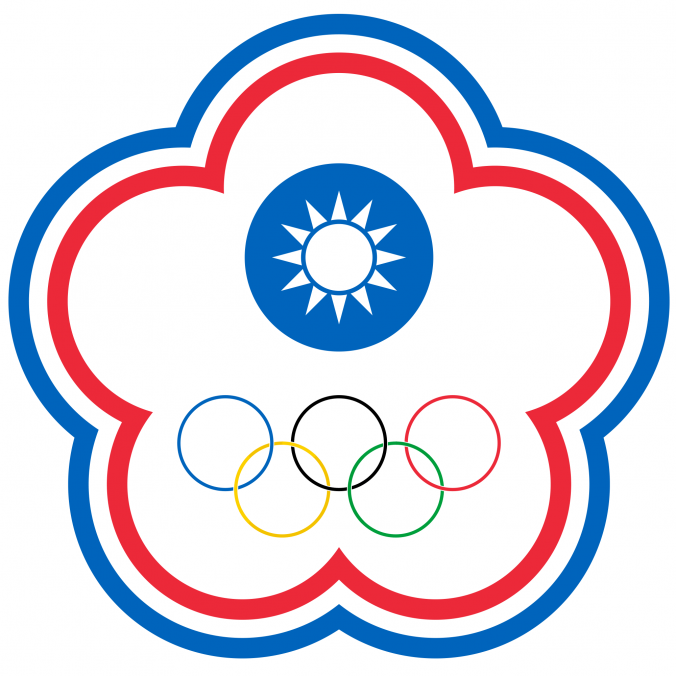
Due to Taiwan's unique political status, representation in international organisations and events is quite tricky. Although Taiwan's official name is "Republic of China" (中華民國, ROC for short), because of the one China policy, both mainland China (the "People's Republic of China", 中华人民共和国 or PRC) and the ROC are adamant about the nomenclature used to represent Taiwan. If the ROC and PRC were to coexist in an organisation, this would be indicative that Taiwan is independent from the rest of China and imply the PRC is accepting of Taiwan as a sovereign state.
Due to the lack of formal recognition of Taiwan as a sovereign entity (mainly fuelled by the PRC's resistance and insistence that Taiwan is a renegade province temporarily separated as a result of the Chinese Civil War), Taiwanese participating in international organisations are often represented under the title "Chinese Taipei", or 中華台北 in Chinese. The team is, and has been, 100% Taiwanese since 1949 and competes in the Olympics under this invented name so China will not pressure the event to exclude Taiwanese athletes. At worst, competing under the accurate name of "Taiwan" would trigger a military reaction from Beijing against Taiwan as it would be viewed by Beijing as an "act of secession", although Taiwan is an open democracy and, in fact, the two are separate governments similar to the situation between North and South Korea.
During the 1970s when most of the world began switching their recognition of China from Taipei to Beijing, the Taiwanese were left with very few options when participating in international organisations. Calling themselves "Republic of China" would be against the one China policy, just as simply "Taiwan" or "Formosa" (the name of Taiwan island) would do the same, especially during a time in which both governments claimed sole authority over all China, and referring only to the island of Taiwan would discount and underrepresent other territories under ROC control in mainland China such as Kinmen and Matsu, as well as the Penghu archipelago. The name "Taiwan, China" would also make Taiwan appear to be subordinate and a part of the PRC (which the world now simply just refers to as China).
The choice to use "Chinese Taipei" in English as an official name is a very deliberate one that meets the criteria of both the ROC and PRC. The word Chinese is intentionally vague as it could refer to the Chinese state (whether that be the PRC or ROC) or Chinese culture and nation. Also, using Taipei (the capital city of the ROC) instead of Taiwan steers clear of the all-important sovereignty issue. While the Taiwanese public would largely prefer to use the name Taiwan in organizations such as the Olympics, they accept using Chinese Taipei so that PRC China and the Beijing authorities will not pressure the event to exclude Taiwanese athletes.
Read more here: Is Taiwan part of China?
The Chinese translation of Chinese Taipei varies upon who is using the term. In Taiwan, Chinese Taipei is always translated as 中華台北, making sure the Chinese is representative of Chinese culture and the nation of China that has existed for more than five thousand years. In mainland China, it is most commonly translated as 中国台北, making sure that the Chinese is representative of the Chinese state and its inclusion/possession of Taiwan, although recently the translation 中华台北 (similar to that of Taiwan) has been surfacing as tensions between the two lessen. In English, the PRC exclusively references Taiwan as "China's Taiwan", similar to the way the PRC refers to Hong Kong as "China's Hong Kong".
Ultimately, how Taiwan is referred to abroad is solely up to each country or group's discretion. Generally in an informal setting, the term Taiwan is directly used, while Chinese Taipei is used as strictly a formality. Japan is one of the few countries to outright refuse to use the name Chinese Taipei, and directly refer to Taiwan as Taiwan, much to the dismay and disapproval by the PRC.
The flag used by Chinese Taipei varies depending on event, however it is generally a Prunus mei flower outline, a Blue Sky with a White Sun (the national emblem of the ROC and Kuomintang political party) along the top, and the given event's logo in the centre. Chinese Taipei is not allowed to use the ROC national flag and must use this Chinese Taipei flag (along with an alternate "national anthem") when participating and competing abroad.
Due to the similarities between the ROC flag and others such as Samoa and the previous flag of Myanmar (Burma), many Taiwanese have flown these flags in support of their teams, especially during the 2008 Beijing Olympics where flying an ROC flag would have been a punishable offence as an act of separatism.
More articles on GuideToTaipei.com about Taiwan's history: